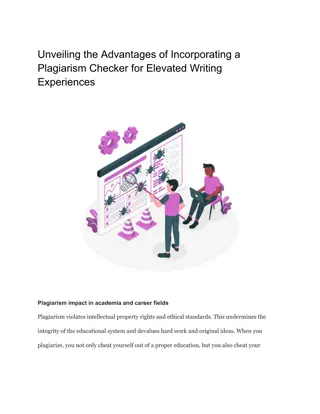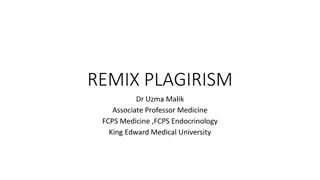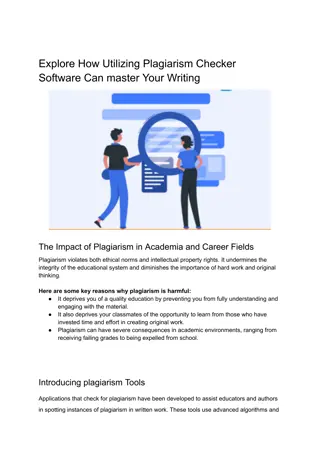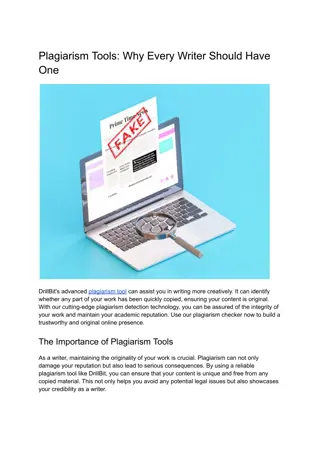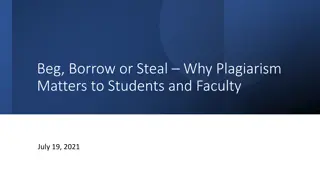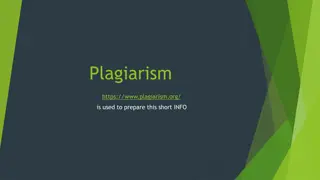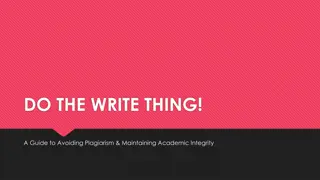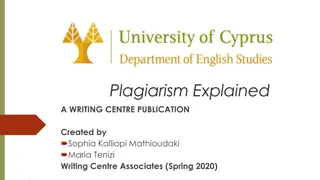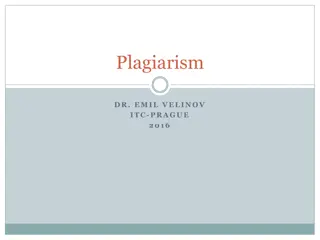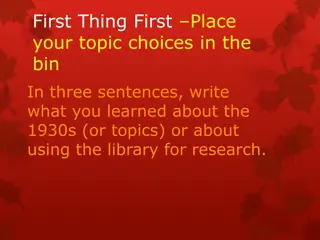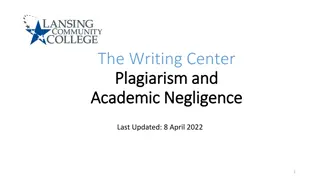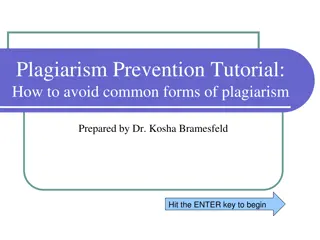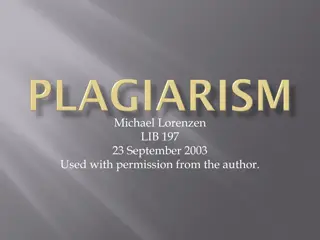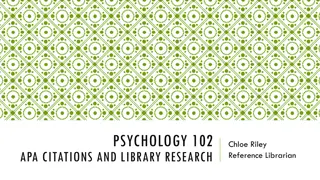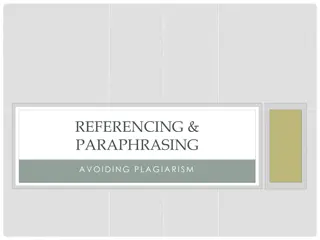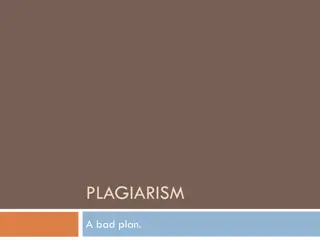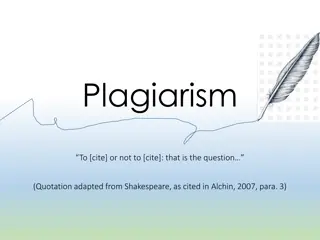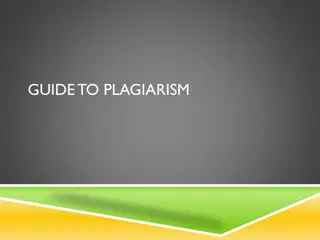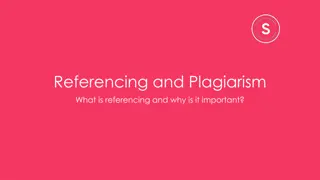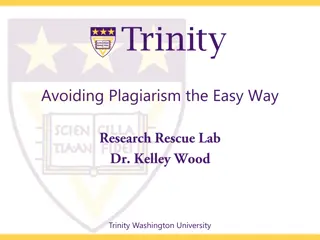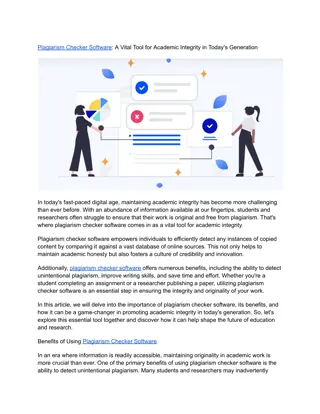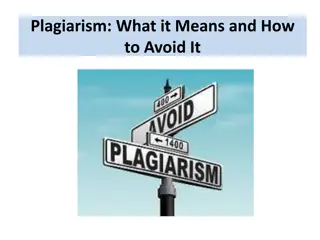Plagiarism: Unauthorized Imitation & Its Consequences
Plagiarism is the unauthorized use of another's work without acknowledgment, leading to severe penalties in academic settings. This includes copying thoughts, words, and ideas without proper attribution. Learn how to avoid plagiarism by paraphrasing, taking notes, and citing sources correctly to uphold academic integrity.
Download Presentation

Please find below an Image/Link to download the presentation.
The content on the website is provided AS IS for your information and personal use only. It may not be sold, licensed, or shared on other websites without obtaining consent from the author.If you encounter any issues during the download, it is possible that the publisher has removed the file from their server.
You are allowed to download the files provided on this website for personal or commercial use, subject to the condition that they are used lawfully. All files are the property of their respective owners.
The content on the website is provided AS IS for your information and personal use only. It may not be sold, licensed, or shared on other websites without obtaining consent from the author.
E N D
Presentation Transcript
According to Dictionary.com, the unauthorized use or close imitation of the language and thoughts of another author and the representation of them as one's own original work.
No students shall submit as their own to an instructor any work which contains ideas or materials taken from another without full acknowledgement of the author and source (Student Code, 2.2.3.02). The penalty from the Dean of Students will be not less than disciplinary probation and not more than expulsion (2.2.3).
Tired/frustrated Confused/scared Run out of time Student does not know they are plagiarizing. Lazy
When researching, take notes. *Use highlighters and a printer often *Use post-its to take notes *Index cards
Paraphrase If you think a point or sentence is valid and strongly proven by your source, try to put their idea into your own words right away. Not only will that help you better understand what the author is trying to say, but it will save you from plagiarism in the long run.
Trouble With Biofuels By: Brian Walsh Time Magazine Thursday, February 14th, 2008 Maybe it was simply too good to be true. For proponents, biofuels petroleum substitutes made from plant matter like corn or sugar cane seemed to promise everything. Using biofuels rather than oil would reduce the greenhouse gases that accelerate global warming, because plants absorb carbon dioxide when they grow, balancing out the carbon released when burned in cars or trucks. Using homegrown biofuels would help the U.S. reduce its utter dependence on foreign oil, and provide needed income for rural farmers around the world. And unlike cars powered purely by electric batteries or hydrogen fuel cells two alternate technologies that have yet to pan out biofuels could be used right now.
Always write down: The author s name, Year of publication, The title, including the URL if it s a website. Try to find these items right away so that you can have half the Works Cited page done upon researching.
Avoid the copy and paste buttons. . And if you do copy and paste: make sure to put quotation marks around the sentence or paragraph right away so you remember when you come back to it later.
Dont wait until the last minute! Lots of students wait till the last minute and then take the easy way out because they are scared to fail.
Quotesmake sure to cite quotes that are being used as attention getters. Even if your teacher says, you don t need sources and you use information from the web, it NEEDS to be cited.
Works Cited Bradley, William, Heldreth, Lillian, Horan, Christine, Kynell, Teresa, Schiffer, James. Addressing the Problem of Plagiarism. NMU Student Handbook. (2002). Bedford/St. Martin s. Straight Talk about Plagiarism. The Bedford/St. Martin s Workshop on Plagiarism. 4 October 2004 <http://bedfordstmartins.com/plagiarism/flyer>. Plagiarism." Dictionary.com Unabridged (v 1.1). Random House, Inc. 28 Sep. 2007. Dictionary.com http://dictionary.reference.com/browse/plagiarism>. Procter, Margaret. How Not to Plagiarize. University of Toronto. 2005. 15 April 2005 <http://www.utoronto.ca/writing/plagsep.html>.


